|
This week, Selfishgenie Publishing hands over its blog to Robert Cubitt, one of our authors, who returns to tell us about his experiences in publishing an audiobook. All Views expressed are those of the author and do not necessarily represent the views of Selfishgenie Publishing.  Back in December 2022 I wrote a blog about dipping my toe into the audiobook market and whether it was right for Indie authors, given the expense of employing a professional narrator (starting prices are around £1,500 ($1,600)). You can find the original blog in the December 2022 archive. At that time, I promised to get back to you to talk about the outcomes, so here I am. I’d like to be able to report that I had a great response to the audiobook and sales were phenomenal, but I would be lying. I have made some sales, but they aren’t anywhere near as many as I hoped, or as they needed to be to recoup my investment.  I put the blame squarely on ACX.com, the platform that the books are distributed through. They are a subsidiary of retailing giant Amazon. They offer no assistance with marketing. This is remarkable, considering that ACX.com can only make money if authors are able to sell their audiobooks. Users of KDP will be familiar with the range of marketing tools that the site offers, including access to Amazon Ads. But there are no equivalents on ACX.com. Amazon Ads are available for audiobooks in the USA, but I don’t live in the USA and my audiobook isn’t aimed at the American market (but American and Canadian readers are welcome to listen to it - see below for more information). So, not much help here in the UK. But even if I wanted to sell my audiobook in the USA, that marketing channel isn’t accessible through ACX.com. There is no link from one to the other. BTW Chirp, the audiobook channel of the book marketing site BookBub, also operates only in the USA and Canada. So, not much use to us 400 million Europeans then.  The little bit of advice that is offered by ACX.com is in their blogs. I can sum it all up in three bullet points: - Find some reviewers, - Use social media (including paid advertising). - Pay audiobook promotion sites (but none are recommended so you pay your money and take your own chances). The only practical help they provide is a batch of promo codes for free giveaways of your audiobook, presumably to give to those reviewers that are queuing up to offer their services for free (sarcasm), but they offer no channel through which to distribute those, so once again the author is left high and dry.  The whole point of using Amazon Ads to sell a book is that the ads are targeted directly at people who are already looking for books to buy. The problem with advertising using social media is that people seeing an ad on the social media feed (a) might not be looking for a book to buy and (b) they have to leave their social media browsing in order to buy the book even if they are interested. Getting people to leave their social media browsing acts as a barrier to sales. If I, a humble amateur marketeer, know that you would expect the professional marketing people at ACX.com and Audible to know that too, and to follow the lead of Amazon to remove that "advertising by proxy" barrier to sales. But they don't. Or, if they do know it, they don't consider it worth the bother to do anything about it. I have to say I find this quite remarkable. After all, if the author can’t market their book, ACX.com doesn’t make any money from the book either. You would think they would be moving heaven and earth to help authors to market their books. Not only that, but the marketing activity itself can be monetised to produce revenue for them.  The faceless corporation. The faceless corporation. I don’t know who actually runs ACX.com and Audible, but they aren’t very business-like if they are finding ways of NOT making money. In addition, I have found their customer service to be less than professional. Their stock answer to every question or problem seems to be “try asking someone else”. Again, they seem intent on not helping their company to make money. I’ll give you an idea of just how unhelpful ACX.com is. After doing a Google search, I found this blog article (I couldn’t find it on ACX.com itself) about creating an Audible author page. Good idea, I thought. I’ll click the link and do that. The trouble was, there is no link. And I can’t find out how to do it through the Audible website because that is aimed at listeners, not authors. 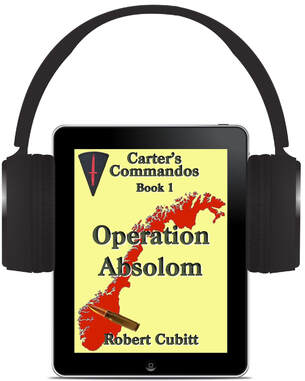 So, unless you are very good at marketing your books, you will probably struggle just as much as I have with trying to find any listeners for your audiobooks if you distribute through ACX.com. Now, you may be questioning the quality of my book at this point. After all, nobody can sell a bad book, even in audio format.. A fair observation and if the ebook and paperback versions were selling equally badly, I would agree with you. However, that isn’t the case. Operation Absolom is my biggest revenue earner, and it is so successful that the royalties from it are what paid for the production of the audiobook in the first place. Given the level of investment required, you can work out for yourself how successful the book has had to be in order for me to make the decision to produce the audiobook. 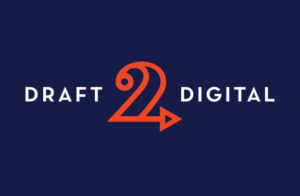 There is a slightly cheaper option. Alternative self publishing book distribution site Draft2Digital (D2D) have their own panel of narrators who offer prices from around $135 (£120) per narrating hour, giving an overall cost of approximately $1,400 (£1,300) for a 300 page book. I haven’t used them for audiobooks (I have for ebooks and paperbacks) and if you do then you can’t receive the higher (40%) royalty rate from ACX.com if you also distribute through D2D. However, it does provide a wide distribution channel, so it may be something you wish to consider. If you already distribute an audiobook through ACX.com you can also put it on D2D (using the same audio files), but you will have to reduce your royalty option on ACX.com to the 20% level. But there are no marketing tools provided by D2D either, so you will encounter the same problems when it comes to helping listeners to find your books 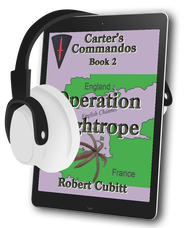 So, am I advising Indie authors not to venture into audiobooks? No, I am not. This is a growing market and Indie authors can gain an advantage by getting their books into audio before it gets too big and swamps us all. But I am advising Indie authors to consider how they are going to market their audiobooks before spending all that money, because you will get precious little help from ACX.com and D2D. If you can’t crack the marketing nut before you invest heavily in your audiobook, then it is probably advisable to proceed with caution. What about me? Am I giving up on audiobooks? No, I’m not. In fact, I’m doubling down. Book 2 to of the Carter’s Commandos series, “Operation Tightrope” is already live on Amazon, Audible and iTunes. . Again, I’m invested my royalties from my ebooks and paperbacks to cover the narration costs (more proof of their continuing success). Now I’m going to crack that marketing nut if it kills me. If I succeed, I’ll be sure to come back and let you know, so you can do it too. If you do decide that you want to get into the audiobook market, then I wish you every success. If you have enjoyed this blog, or found it informative, then make sure you don’t miss future editions. Just click on the button below to sign up for our newsletter. We’ll even send you a free ebook for doing so.
0 Comments
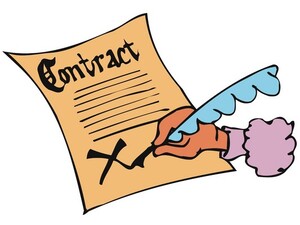 It is the dream of all Indie authors: to snag an agent or a publisher and get that elusive publishing deal. Yet so few Indie authors are able to fulfil that dream. But it is achievable, and it is probably easier than you think. However, it is also somewhat counterintuitive to do what is necessary to fulfil the dream. It may also require the author to make a few compromises. OK, if it’s that easy, tell us the secret, oh Selfishgenie. OK, we will.  The first thing you have to do is recognise that publishers hate taking risks with new authors. Risk threatens to reduce profits and there are stories in the industry of publishers being left with warehouses full of books because they took a gamble on a new author that didn’t pay off. These stories are probably apocryphal, but they are enough to give publishers nightmares. In that case how do new authors ever get signed? The answer to that is that it isn’t always the author themselves that represents the risk. It’s the type of book they are writing. The author may be the next Ernest Hemingway or Hilary Mantel in terms of the quality of their writing, but if they aren’t writing the sort of books that readers want to read, then they will never become bestselling authors. It is quite possible that in today’s market, Hemingway would also be unable to find a publisher because his type of books aren’t selling these days (my speculation, of course) Which is why new those authors represent a risk. This is where things become counterintuitive.  You may think that to get that elusive publishing deal your book has to be different from what is already out there in the bookstores. You would be wrong. It's the exact opposite. Your book has to be the same (or at least similar) to what is already out there. To de-risk their industry, publishers follow the reading fashions. If J R R Martin’s books are selling, then publishers are hungry for books just like his. If Lee Childs’ books are selling, then publishers will also be hungry for books like his. So, if you want to snag that elusive publishing deal, your books have to follow the fashion. By publishing books that are what the public is reading at that moment, publishers are able to de-risk their products Give the public what they want and they’ll come flocking to your door. 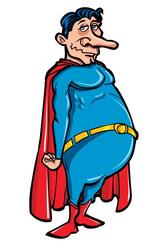 We already see this in cinema, of course. In the last decade, 5 of the top 10 box office hits were superhero movies, four of which were from the Avengers franchise and the 5th was Black Panther. Of the remaining 5 one was from the Star Wars franchise, another was from the Jurassic Park franchise and two more were Disney films, which are always popular. If that’s what the public wants, is it any surprise that we get so many superhero films, Star Wars films, Disney films et al? And the same applies to books. This desire to follow the fashion then feeds back to agents. If publishers want a particular type of book, then agents will want to find authors who are writing that type of book. Because it is easier, and more lucrative, to sign authors who are writing the sorts of books that publishers are looking for. So, sending an agent something different is not going to get you signed. Of course, going to Bloomsbury or Scholastic Press and offering them a Harry Potter clone isn’t going to help the Indie author. After all, those two publishers already have the original Harry Potter. No, you need to approach a publisher/agent that hasn’t got Harry Potter and offer them your clone.  At the same time as responding to fashion, publishers also create reading fashions. After all, if all the publishers are producing Harry Potter clones, then that limits the choice for readers, so they buy them even if they would actually welcome a change. We see this each year with clothing fashions. If manufacturers decide that green baseball caps are going to be “in” this year that is what they will produce, and they will pay “influencers” to get the public to wear them. Pretty soon all you will see will be green baseball caps! Then, next year, because everyone already has a green baseball cap, they’ll switch the colour and repeat the trick so they can sell more product. And we fall for it, so we only have ourselves to blame. Exactly the same methods apply with books. But you don’t want to write Harry Potter clones or Jack Reacher clones, do you? 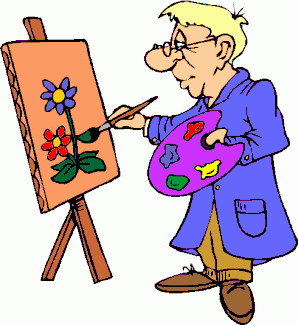 You have your own story ideas and those are the ones you want to work on. You have “artistic integrity” and you won’t be dictated to with regard to your plots, your characters or your writing style. OK, I respect that. But artistic integrity doesn’t put food on the table. When you are a big name writer you have a bit of power that you can exert. Your name alone will sell books. That means your publisher is likely to be more flexible about what they will buy from you. And if they aren’t flexible, your name is big enough to open doors to other publishers who might allow you to write what you want, because you no longer represent a risk. You are “box office”, as they say in the movie making world. 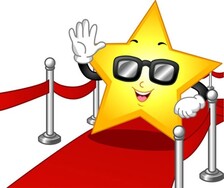 It’s the reason why celebrities who can barely write their own names are able to get publishing deals. It’s not the quality of the book that sells it, it’s the name on the cover,. But you have to be a “name” first and that may mean compromise. Write what the publishers want now, so you are granted the freedom to write what you want to write in the future. So, what should you be writing right now in order to snag that contract? The answer to that is likely to change from month to month and year to year, which isn’t helpful. The best sellers list on Amazon will tell you what is fashionable right now as will the Sunday Times (or New York Times in the USA) best sellers list, but that won’t tell you what will be fashionable in 6 months’ time when your book is ready for querying. Fortunately, fashions in reading change quite slowly, certainly slower than they do in clothing, so you probably have time to get on the bandwagon with your next book. The top three genres (UK) to write in are Crime and Thrillers (33% of the market) , Fantasy Fiction (22%) and Action & Adventure (20%). There are, however, subdivisions below those headline genres and not all of them are as popular as others. But what you will probably notice is that the most popular books right now are character led, not plot led. Less popular at the moment are Modern Classics (No idea, but they are only 11% of the market), Horror (11%) and Short Stories (14%)* Some genres are so unpopular that their market share doesn’t even register on the graphs.  Some publishers do allow themselves to take a few risks. They look for good new writers and offer them publishing deals. However, they won’t throw a lot of money into marketing their book. At least, not the first one. The first print run of the hardback version of Harry Potter and the Philosopher’s Stone was only 500 books, most of which went to libraries. That’s how much faith Bloomsbury had in J K Rowling for her first book. Fortunately it was the American market that saw its potential and made her the best-seller she is, while the UK market caught up later. So, yes, you might find an agent and a publisher willing to take a risk on you even if you aren’t writing whatever is fashionable. But it is probably going to be a harder furrow to plough. * Figures for 2020, the most recent we could find from a reliable source. If you have enjoyed this blog, or found it informative, then make sure you don’t miss future editions. Just click on the button below to sign up for our newsletter. We’ll even send you a free ebook for doing so. 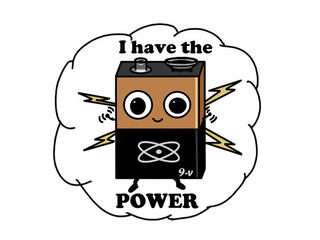 In last week’s blog I discussed what made up a culture, because it is so important when it comes to anchoring both your fictional world and also your fictional characters. In several places I used the word “power” as something that was needed to exert control. Who holds power and how they use it is an important part of culture as it shapes the way people behave, which is why culture is important in a novel. Understanding power is also very important in developing characters and plot, as I hope to demonstrate. Give the right characters the right levels of power in the right form and at the right time, you can do anything in a plot. A lot of that power isn’t actually held by the protagonist or antagonist, it is held by other characters, which makes for a more complex, and therefore more satisfying, plot.  Is your protagonist powerless? Is your protagonist powerless? However, this makes it sound as though there is only one sort of power. It is clearly visible in an antagonist, who arrays all sorts of powerful forces in order to frustrate the protagonist. However, this would suggest that the protagonist has no power of their own. If that were true, then the protagonist could never come out on top in a novel. In order to overcome power, the protagonist must have at least the same level of power. Either that, or they must be able to strip the antagonist of their power, in order to provide an equal “match up”. This can be seen in Lord of the Rings, where Frodo’s allies keep the Dark Lord diverted, concentrating on battles further away, while Frodo and Sam sneak into Mordor by the back door. They use alliances to create a large enough power base to take on Sauron. Stripping power away from the antagonist by a weaker force is demonstrated in two films. The first is Star Wars, where a single X Wing fighter destroys the Death Star. The same trope is used in Independence Day when Will Smith and Jeff Goldblum plant a nuclear device inside the aliens’ mothership, robbing them of their defences. 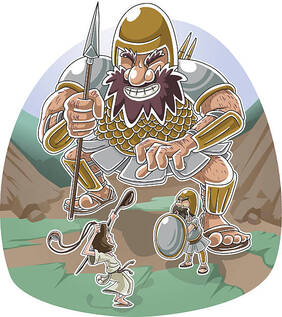 What sort of power did David use to slay Goliath? What sort of power did David use to slay Goliath? Both these acts render the antagonist(s) powerless, allowing the protagonists to triumph. Both of those are really David and Goliath stories told a different way. But when he accepted the challenge of Goliath, David knew something that Goliath didn’t. He knew he possessed “expert power” (see below). And if you think that power games are only the tools of action adventure novelists, then think again. It requires power of some sort to thwart the lovers in a romance. It just isn’t the sort of power that comes from the barrel of a gun (well, not usually). So, what sort of power can the author use to win the conflicts into which we send our protagonists? Studies of power structures have been carried out in business so that they can be understood. But don’t assume that they only apply to business. Businesses are made up of people and power is only of use if it can be used to control or influence people. Politics works pretty much the same way and if you belong to any sort of organisational structure, right down to the village darts team, you will encounter some sort power being used to some degree. 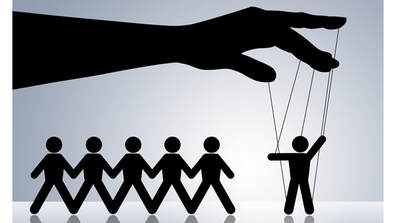 The fact that you don’t always see that power being wielded is a mark of how subtle its use can sometimes be. You don’t always have to plant a nuclear device in an alien spaceship in order to wield power. What types of power are there? Amarjit Singh PEng F.ASCE published a paper in 2009 which analysed this question, drawing on the findings of several other researchers. He studied several sources of power. 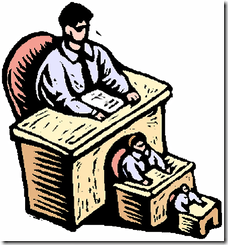 First we have legitimate power, aka positional power. This is power that “comes with the territory”. A Prime Minister or President will wield that sort of power, as will the CEO of a company. This is the sort of power that we are familiar with, because even the Evil Emperor will regard their power as being legitimate. After all, there is no one (they think) that can deny them their power. Crime bosses exercise what they regard as legitimate power, backing it up with violence and the use of weapons when needed. Just like Presidents or Prime Ministers who take their countries to war. The circumstances may be morally different, but the same sort of power is applied to make it happen. The police hold legitimate power, because they are established under laws passed by the government. However, they can also abuse the power invested in them. Within any organisation there are people who hold power. The amount of power may vary depending on their pay grade, but they all have it to some degree. Even the guy or gal on the production line has the power to bring it to halt if they walk off the job. So that one was easily dealt with.  Being able to bestow rewards is a source of power. Being able to bestow rewards is a source of power. Next we have “reward power”. Even a quite junior manager can exercise reward power, deciding who will receive bonuses, who will get a promotion and who won’t, right down to who gets the easy work and who gets to clean out the sewer. That sort of power makes sure people do what the manager wants them to do. A lot of this power is delegated from above, but it is something that can be used or abused. But ordinary members of the public also use reward power. We tip waiters and cab drivers for good service – and they know that if they do a good job they’ll get their tip. (I know this is different in the USA where everyone gets a tip regardless of whether they provided good service, but I’m not in the USA). That means the customer holds the power to control their behaviour. We may offer a Maitre D a small bribe to find us a better table (or any table at all). We also use reward power when we decide to go back to the same restaurant because they provided good service or avoid a restaurant that gave bad service. We call this “consumer power” and we all have it to a certain degree. All we have to do is adapt the concept for our novels. The prospect of a reward can get people to do what we want in a story. Treasure Island is based on the idea that if the crew of the Hispaniola cross the world with Squire Trelawney, there will be a reward at the end of it, when the treasure is found. That is a clear use of reward power in a novel.  Coercive power is fairly self-explanatory. It is based on fear. “Do what I tell you, or it won’t go well for you”. This isn’t seen in the workplace as often as it used to be, employment tribunals have seen to that (in the UK anyway), but it is still found outside the workplace. The coercion doesn’t just have to involve the threat of violence. Blackmail is a form of coercion, as are threats of isolation from the group – what we call “Being sent to Coventry”. There are probably other forms of coercion you can think of. Moral blackmail - convincing people "it's the right thing to do" - is also a form of coercion. What some people think of as persuasion or influencing can also be interpreted as coercion if it is taken beyond certain ill-defined limits. And, of course, coercion is often seen in bad relationships.  In the land of the blind, the one eyed man (or woman) is King. This alludes to expert power. If you know something, or understand something, that nobody else knows or understands, it is a source of power. This is often seen in wage negotiations. Back in the 1970s and 80s IT experts could pretty much write their own salary cheques, because so few businesses knew how to use computers. Today, however, that knowledge is commonplace and IT wage levels aren’t as generous as they once were. So expert power isn't always permanent. In fiction, we often make our protagonists experts in some field or another. Robert Langdon, the protagonist in the Da Vinci Code, is an expert in symbology. Tom Clancy’s protagonist Jack Ryan started out as an expert in interpreting military intelligence. Both are ordinary people at heart but become powerful through their application knowledge. In Lee Child's "Jack Reacher" novels, Jack is an expert in many fields. Even if we don’t make the protagonist an expert like Robert Langdon, we will give them special skills that they can use, such as being experts at unarmed combat. That is a source of power when they get into a fight and allows them to win. As mentioned much earlier in this blog, David had expert power which he used to defeat Goliath. He was an expert in the use of a slingshot, which negated Goliath’s size and strength. In cosy crime novels, amateur detectives outshine their professional counterparts by applying their expertise to solve crimes. Because they aren’t hide-bound by procedure, they can let their expert knowledge take them in directions the professional couldn’t or wouldn’t consider (at least, as far as fiction is concerned they wouldn’t consider). But in the end the amateur still requires the legitimate power of the police to make the actual arrest. So, you have two sources of power working within one book. If the murderer is also an expert in poisons, that is another source of expert power – which gives them the power to commit murder.  Charisma is a source of power. Its proper name is “referent power”. We often hear of charismatic leaders. We might also say that people admire or worship them. We see this a lot with celebrities, who use their referent power to become rich. Its basis is entirely due to how one person views another. If you don’t regard a person as charismatic (like a few politicians I could name), you won’t fall under their influence. People are drawn to charismatic people and are happy to help them. Charismatic people are therefore able to use that as a source of power, using their admirers to do their bidding. The only difference between the charismatic protagonist and the charismatic antagonist is what they ask their admirers to do. Robin Hood is probably the best known charismatic protagonist (if you are religious, it may be Jesus or Mohammed). In romance a common trope is the charismatic person who holds one of the star-crossed lovers in thrall. One way that charismatic power can be thwarted is to expose a character defect that hasn’t previously been visible, such as a cruel streak. It breaks the spell and sends the lover back to the one he/she should really be with. 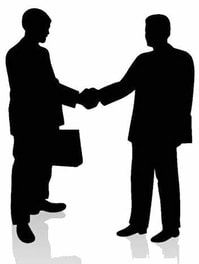 You scratch my back and I’ll scratch yours, is otherwise called “reciprocal power”. It can also be called “resource power” as it usually involves a trading of resources. It requires both characters to have something that the other character needs. How valuable the resources are will influence the balance of power. In this case valuable doesn’t refer to intrinsic value, it refers to how much the character needs the resource. If you have the gun I need in order to go after the antagonist, I might be quite generous in what I offer in exchange. But the resource doesn't have to be physical. Politicians, for example, trade favours in order to gain support and to form alliances. In LOTR each of the fellowship has something that Frodo needs to help him get to Mordor. The most obvious is the magic wielded by Gandalf, but Frodo would have been helpless in the caverns of Moria without Gimli's knowledge. Aragorn is the King behind whom men rally. Even Sam Gamgee has something that Frodo needs – his bravery, steadfastness and determination. Without Sam, Frodo would never have made it into Mordor. And, in exchange for the resources that each of the fellowship provides, Frodo does the dirty work for them and carries the ring. There is even a conference at Rivendell where the negotiations are held, though it isn’t depicted as a negotiation.  What sort of power do you have? What sort of power do you have? So, as you can see, power isn’t something that is one sided. In addition, the sum of the power that the protagonist can bring to bear must be at least equal, if not greater, than the power of the antagonist. Either that, or you have to find a way of stripping the antagonist of their power. James Bond has to kill a lot of henchmen before he can go mano y mano with the villain, which is no different than getting a nuclear device onto an alien mothership. As an exercise, you might want to analyse the sort of power you are able to wield in different circumstances. For example, how much legitimate power do you have? How much resource power? How much reward power and how much referent power? If you are the only person in your place of work who knows how to use the photocopier, you have "expert power" - at least until someone else reads the user manual. Although we might not always feel it, we are all able to use power at some time in our lives, even if it is only every few years at the ballot box. If you have enjoyed this blog, or found it informative, then make sure you don’t miss future editions. Just click on the button below to sign up for our newsletter. We’ll even send you a free ebook for doing so. 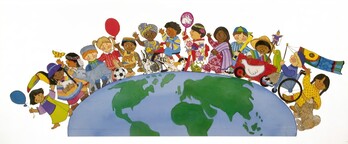 There was a question on Twitter recently that asked what authors thought was the most important thing to think about when world building. The Tweeter listed a few considerations, amongst which was the word “culture”. I Tweeted a reply to point out that culture wasn’t a single thing. It was a number of related things. That exchange of Tweets led to this blog. Loosely termed, culture could be described as “the way things are done around here”. But that does oversimplify things a lot.  To think of culture as a single thing is like thinking of car just in terms of its exterior shape. It may look nice, but without an engine, gearbox, wheels, etc the car is nothing more than a pretty shape that serves no purpose. A working car is a “system” - and so is a culture. My training in cultural issues came while I was working for a living in business and at that time many businesses were struggling to change their cultures from old fashioned, top down, target driven, tightly controlled workplaces to places where the employees had greater input which, in turn, resulted in greater job satisfaction and hence to greater productivity. Such cultural change is not easy to bring about. Managers in those businesses often thought that such a change robbed them of their power and status, so they opposed it. They couldn’t do so openly, but they became experts at undermining change without revealing themselves. So, who would secretly oppose change in your fantasy world – and why? 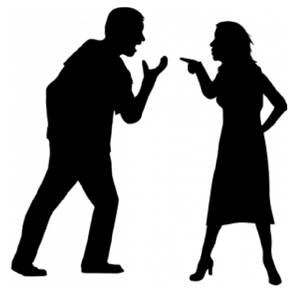 Trades unions also opposed such change, but more openly, because they wanted a workplace that involved conflict as conflict formed their raison d’etre. A happy workplace is one where conflict is rare, so the unions have little part to play, so they don’t wield any power. Finally, the employees themselves feared change, because it brought uncertainty. This was especially true in businesses with a previously bad reputation for employee relations, because there was little or no trust in authority figures. A colleague of mine, with a PhD in organisational change, pointed out that “if you can’t change the people, you have to change the people”. In other words, there may be a few casualties along the way as the people who resist change are quietly shown the door to make room for people with more open minds. But that was business. What has that to do with “world building”? 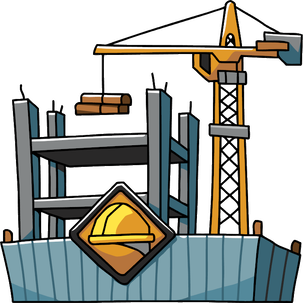 It isn’t just fantasy authors who have to consider culture. All characters in all novels exist within a culture. Some of these are easy for us to relate to, because they are familiar, while others may not be. But if you get the culture right for your story, it will make your character’s conflicts easier to understand. This is especially so if they are taken out of their own, comfortable culture and placed in one where they feel like an alien. Just going to a different town can make some people feel like that, so imagine what it feels like for someone going to a country on the far side of the world - or the far side of the galaxy. Understanding the elements that make up a culture allows the world builder to build something that is believable. The granddaddy of fantasy, Tolkien, got this right (mainly) with his Lord of the Rings trilogy and authors who have modelled themselves on Tolkien’s style tend to get the culture of their worlds right as well. 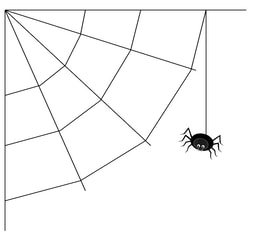 Experts on culture talk about the “cultural web”. These are the interconnected elements that make up the organisation’s culture. If you are worried about my use of the word “organisation” please don’t be. I’m not using it in the business sense. Any society is also an organisation and the world you build is just another society, supported by its own cultural web. The stronger it’s cultural web, the stronger the society that comes out of it. One of the reasons that revolutions fail is that they sweep away an old, outdated culture, but neglect to put the right elements into place to support the culture they want for the future. This leaves a vacuum into which counter revolutionaries can slip to undermine the new regime. Your fantasy world is just another form of country, with its pro and anti-revolutionary elements. If your hero wants to bring down an evil empire, they need something with which to replace it, or the old regime will simply return in a new disguise – just as Sauron was able to return in LOTR. Think about Putin and Russia in 2023, compared to the old USSR which everyone thought had been swept away in 1991. The similarities are many even though it isn’t now a communist state. But it isn’t a democracy either. The leadership and political ideology may have changed, but the underlying culture didn’t. So, what makes up the cultural web? Well, the graphic below lays it out in visual form, but I’ll take you through the various elements. 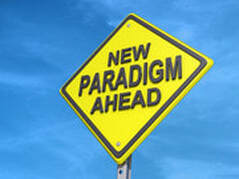 At the centre is the “paradigm”. This is the set of ideas or concepts that make up the world that you are building. Some of these are mutually exclusive. You can’t have a world ruled by a King that is also a Republic, for example. This is where your antagonist becomes very important. Whoever is running the Evil Empire has to have some reason for doing it. They must also have some idea about what they want achieve from what they are doing. This is where LOTR actually fails, for me. I can’t understand what satisfaction Sauron gest from all that power. Just desiring power is too shallow for me. Power needs a purpose, otherwise it is of no use. So, to start your world building you have to construct a paradigm for it. That is all about the ideas and beliefs that underpin whatever its happening. What does “Evil” want to achieve and what does “Good” want to put in the place of Evil. Those things will define how the people live. If it is a tyranny, then you can’t give the people any power when it comes to decision making. On the other hand, if it is a collective, then the people will have plenty of say in what happens. Those are two extremes, of course.  Surrounding the paradigm are the six inter-connected elements that make the paradigm work. Leave out one, or put the wrong things into it, and the paradigm itself won’t stand up to scrutiny. For example, if you have a tyrant that controls the lives of everyone, you can’t also have an independent legal system, because that would be able to say “no, you can’t do that” to the tyrant. Sauron didn’t have a Court of Appeal, for example. Instead he had Ring Wraiths and Nazgul. So, the most important bit of the cultural web, after the paradigm, is the organisational structure that supports it. Traditionally there are three parts: The lawmakers (tyrants, kings, nobility, politicians, etc). Then there are the people responsible for applying the law (Civil servants, administrators, local government, police, Ring Wraiths etc) and finally there is the legal system that sorts out the disputes over what the laws really mean and how fairly they are applied. Even if you have a tyrant running your world, you’ll still have a legal system – it just won’t be a very fair one. For example, the legal system may just be made up of “enforcers” who go around imprisoning, or even executing, anyone who criticises the ruler. 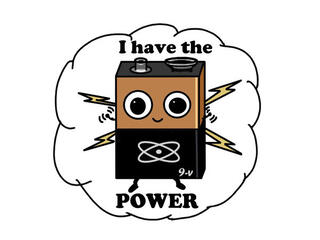 Next up are the power structures. Now, you may think that I’ve already covered those above, but not everyone who wields power is part of the organisational structure. Other people hold power of one sort or another. Businesses, trades unions, religions and more. Who you give power to in your world is quite important as those people can be enemies or allies, whichever you choose them to be. And the amount of power they wield can have a serious impact on your plot. An ally who is powerless isn’t of much use to you and an enemy without a source of power is easy to beat. Your magical figures will fit under this heading, because magic is a source of considerable power. Control systems are a bit abstract in many ways. If you are a King and you make a law, how do you make sure that the people obey that law? There has to be some way to do that. The most obvious example is the police and legal system, but there are other ways of exercising control. Fear is one (don’t stand on a balcony in Russia), wealth is another – either as a reward or a penalty. Control of other resources is a source of power, so it's another way of ensuring compliance.  So, how does your tyrant make sure the people obey? And if you want to depose the tyrant, what control systems must you dismantle or subvert? The whole point about the One Ring was that it was able to control the beings that wore all the other rings. It was even engraved on the inside of it, so everyone knew what it was! And if you dismantle the existing control system, by destroying the One Ring for example, how do you then exercise control afterwards? Or do you let your world descend into anarchy? 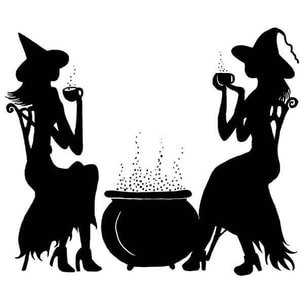 Rituals and routines form an important part in maintaining control over people. Getting people into church (or a mosque or a temple) every week, for example, prevents adherents to the religion from drifting away. The more people you have in your religion, the more power you wield, so you don’t want to lose any. It is also where messages can be sent out and heard. Historically, the pulpit has always been used by governments to send out its messages and to exercise control. I’m sure we can all think of countries where this still happens. But those aren’t the only rituals. Weddings, funerals, christenings, workplace meetings, even getting together once a week for a family meal, to watch TV or go to a football match, all form part of the rituals that identify us as being part of a community. Taking part in a ritual says “I belong here.” They also say “I am conforming, so you don’t have to send me to prison or execute me.” They can be used for good as well as evil.  Believe it or not, stories play a very important part in culture. Stories about heroes encourage the sort of behaviour you want to support, while stories about villains tell you what sort of behaviour you want to discourage. It’s why Bible stories are told, it’s why Aesop wrote his fables and it’s the way the media influences public onion on a wide range of issues. (and you thought they just reported the news) But the heroes and villains of these stories will be different in every culture. In a communist country the heroes might be Marx and Lenin. In Britain Robin Hood is a hero, which is no mean achievement for a thief. Marvel and DC comic books are all about telling stories that express American values. Cults create heroes out of ordinary people, often stretching the truth or telling lies to make the person seem more significant than they were. The media often creates heroes – and villains. Sometimes they even start as heroes and then get turned into villains when the media wants to change the narrative. You will be familiar with the old saying that one man’s terrorist is another man’s freedom fighter (Nelson Mandela). And one man’s despot is another man’s saviour of the nation – politics tells us that because we all see politicians as one or the other depending on which side of the fence we are viewing from. It’s the stories that are told about them that make them one or the other. 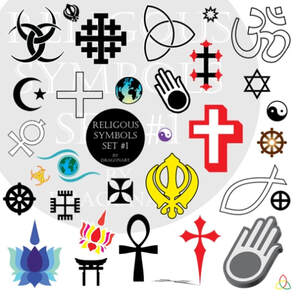 Finally, we have the symbols of our culture. Many of these are physical, such as flags, buildings, coats of arms, etc. We have symbols of wealth that encourage people to strive to achieve. Religions are very big on symbols, as they are with rituals. We salute the symbols we support and we tear down those we despise. But there are also more abstract symbols with which we engage. Symbols may take the form of songs (national anthems are a symbol), the sports we play or watch, etc. The language we use is a symbol, as are phrases such as “motherhood and apple pie” because they are symbolic of cultural values. If you wear any sort of badge (including wrist bands etc) or you wear a tee-shirt with a slogan on it, you are wearing a symbol that declares your allegiance or an ideal you support. The same will apply to your characters. I'm sure that we can all think of symbols that have played a powerful part in events. A swastika will forever be a symbol of hate. So, a lot to think about if you are a world builder who wants to create a world that is believable. I have used mainly real world examples to illustrate what I mean, so if you are a fantasy author you will have to imagine the equivalents for your world. But with a strong culture that your readers can identify, the hero will be able to do things to change the culture for the better and the villains will oppose those changes, which makes for a more satisfying plot. Your hero may spend a lot of time killing dragons, but what do they do with the dragon’s horde once the dragoon is dead? If they keep it for themselves, they are just as bad as the dragon (Thorin Oakenshield in The Hobbit), so they must use it to either support or change the paradigm you created for their world. If you have enjoyed this blog, or found it informative, then make sure you don’t miss future editions. Just click on the button below to sign up for our newsletter. We’ll even send you a free ebook for doing so. |
AuthorThis blog is compiled and curated by the Selfishgenie publishing team. Archives
June 2025
|
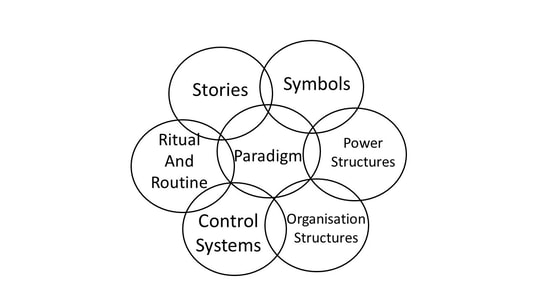
 RSS Feed
RSS Feed